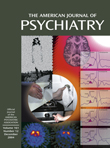Abstract
OBJECTIVE: The authors examined predictors of premature dropout from a voluntary specialized inpatient treatment program for anorexia nervosa. METHOD: One hundred sixty-six consecutive patients with anorexia nervosa received an admission assessment that consisted of a diagnostic interview and psychometric measures of core eating pathology and associated psychopathology. Survival analysis was used to examine the rate, timing, and prediction of dropout. Predictors included a variety of clinical, demographic, and psychometric variables. RESULTS: Compared with program completers, program dropouts were more likely to have the binge eating/purging type of anorexia nervosa (65% versus 26%), had lower restraint scores, and reported more intense maturity fears and concerns about weight. CONCLUSIONS: Patients with the binge eating/purging type of anorexia nervosa are significantly less likely to complete inpatient treatment for the disorder.



